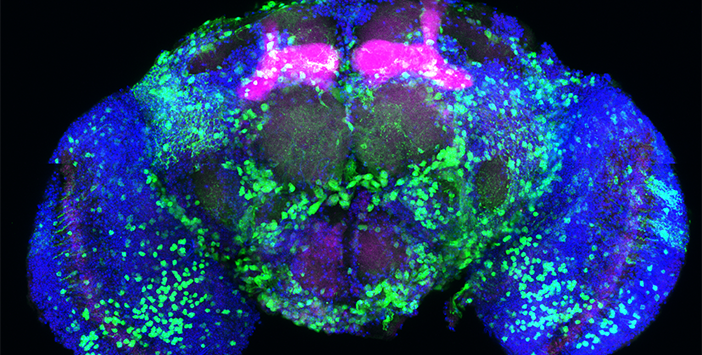Just a few drinks can change how memories are formed.
One of the many challenges with battling alcohol addiction and other substance abuse disorders is the risk of relapse, even after progress toward recovery. Even pesky fruit flies have a hankering for alcohol, and because the molecular signals involved in forming flies’ reward and avoidance memories are much the same as those in humans, they’re a good model for study.
A new study in flies finds that alcohol hijacks this memory formation pathway and changes the proteins expressed in the neurons, forming cravings. Just a few drinks in an evening changes how memories are formed at the fundamental, molecular level.
The findings were published this month in the journal Neuron.
Karla Kaun, PhD, assistant professor of neuroscience senior author on the paper, worked with a team of undergraduates, technicians, and postdoctoral researchers to uncover the molecular signaling pathways and changes in gene expression involved in making and maintaining reward memories.
“One of the things I want to understand is why drugs of abuse can produce really rewarding memories when they’re actually neurotoxins,” says Kaun, who is affiliated with Brown’s Carney Institute for Brain Science. “All drugs of abuse—alcohol, opiates, cocaine, methamphetamine—have adverse side effects. They make people nauseous or they give people hangovers, so why do we find them so rewarding? Why do we remember the good things about them and not the bad? My team is trying to understand on a molecular level what drugs of abuse are doing to memories and why they’re causing cravings.”
Once researchers understand what molecules are changing when cravings are formed, then they can figure out how to help recovering alcoholics and addicts by perhaps decreasing how long the craving memories last, or how intense they are, Kaun says.
Continue reading here.




